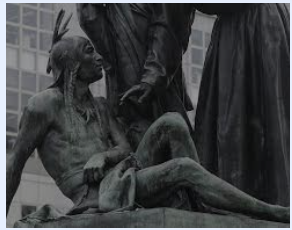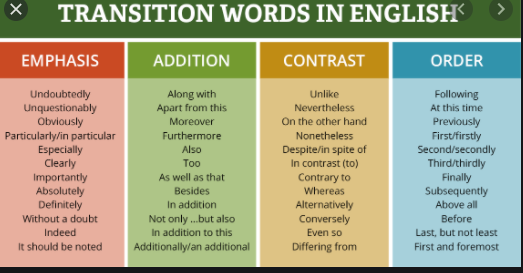Learning Targets: I can find parallels between the discrimination experiences of the Native Americans, Serena Williams and Claude McKay.
I can identify the theme or central idea in Andrew Jackson's Removal Speech
I can give examples of how imagery is used to develop the central idea or theme in Andrew Jackson's Indian Removal speech.
I can give examples of how diction is used to develop the theme or central idea in Andrew Jackson's removal speech.
I can give examples how point of view is used to develop the central idea or theme in Andrew Jackson's removal speech.
On Friday in class, you had the opportunity to listen and follow along with Andrew Jackson's "Indian Removal" speech.
The accompanying graphic organizer, which has the speech paired with close-reading questions, was handed out. You had some time on Friday to begin completing the material, which has content, vocabulary, imagery and diction questions. You have class time today and Tuesday. You may take this home to work on, if you need or receive extra time.
This is independent work. I will collect the graphic organizer at the close of class tomorrow. Please remember that this is counting as a writing grade.
Note: there is an audio link following the vocabulary. Please use earbuds, if you wish to listen to this again in class:
There is a class handout, but if you are absent, the organizer can be copied onto a google doc and shared:
(remember to give me permission to open the document!)
I
ANDREW JACKSON'S SPEECH TO CONGRESS ON 'INDIAN REMOVAL'
ANDREW JACKSON'S SPEECH TO CONGRESS ON 'INDIAN REMOVAL'
Though commonplace at the time — indeed, it is even used in the U.S. Declaraction of Independence — the term "savages" in reference to indigenous peoples is both archaic and considered highly offensive
.
ANDREW JACKSON'S SPEECH TO CONGRESS ON 'INDIAN REMOVAL'
LOOKING AT THE TEXT THROUGH THE LENS OF DICTION (WORD CHOICE) AND IMAGERY
Paragraph 1 "It gives me pleasure to announce to Congress that the benevolent policy of the Government, steadily pursued for nearly thirty years, in relation to the removal of the Indians beyond the white settlements is approaching to a happy consummation. Two important tribes have accepted the provision made for their removal at the last session of Congress, and it is believed that their example will induce the remaining tribes also to seek the same obvious advantages. | . 1. According to Jackson, for how long has the government taken a kind policy in encouraging the Indians to move? . 2. What phrase means a positive outcome? happy consummation . 3. What word means to encourage or persuade? 4. What is implied by the word removal? What is something else that you usually associate with removals? 5. What is implied when Jackson uses the phrase “obvious advantages”? |
Paragraph 2 The consequences of a speedy removal will be important to the United States, to individual States, and to the Indians themselves. The pecuniary advantages which it promises to the Government are the least of its recommendations. It puts an end to all possible danger of collision between the authorities of the General and State Governments on account of the Indians. It will place a dense and civilized population in large tracts of country now occupied by a few savage hunters. By opening the whole territory between Tennessee on the north and Louisiana on the south to the settlement of the whites it will incalculably strengthen the southwestern frontier and render the adjacent States strong enough to repel future invasions without remote aid. It will relieve the whole State of Mississippi and the western part of Alabama of Indian occupancy, and enable those States to advance rapidly in population, wealth, and power. It will separate the Indians from immediate contact with settlements of whites; free them from the power of the States; enable them to pursue happiness in their own way and under their own rude institutions; will retard the progress of decay, which is lessening their numbers, and perhaps cause them gradually, under the protection of the Government and through the influence of good counsels, to cast off their savage habits and become an interesting, civilized, and Christian community. | . 6. Why does Jackson include “United States, to the individual States and Indians” in the same sentence? 7. Why does Jackson emphasize that the money benefits are not what is most important? . 8. What two opposing visual images are set up in the first bolded sentence? 9. What does Jackson predict will eventually happen to the United States? Quote from text. 10. What is the particular advantage for Alabama and Mississippi? (Use text) 11. Jackson points out advantages for the Indians, at the same time insulting them. Moreover, since he is trying to sell the idea of the removal, he flatters the American community. a. What insulting words does he use to describe the native people? (text) b. With what praising words does he describe the citizens of the United States? (text) |
Paragraph 3 What good man would prefer a country covered with forests and ranged by a few thousand savages our extensive Republic, studded with cities, towns, and prosperous farms embellished with all the improvements which art can devise or industry execute, occupied by more than 12,000,000 happy people, and filled with all the blessings of liberty, civilization and religion? | This paragraph is a question. 12. Why does Jackson pose a question? 13. List six of the many visual images within the paragraph. a. b. c. d. e. f. 14. What is implied by the word “blessings”? |
Paragraph 4 The present policy of the Government is but a continuation of the same progressive change by a milder process. The tribes which occupied the countries now constituting the Eastern States were annihilated or have melted away to make room for the whites. The waves of population and civilization are rolling to the westward, and we now propose to acquire the countries occupied by the red men the South and West by a fair exchange, and, at the expense of the United States, to send them to land where their existence may be prolonged and perhaps made perpetual. Doubtless it will be painful to leave the graves of their fathers; but what do they more than our ancestors did or than our children are now doing? To better their condition in an unknown land our forefathers left all that was dear in earthly objects. Our children by thousands yearly leave the land of their birth to seek new homes in distant regions. Does Humanity weep at these painful separations from everything, animate and inanimate, with which the young heart has become entwined? Far from it. It is rather a source of joy that our country affords scope where our young population may range unconstrained in body or in mind, developing the power and facilities of man in their highest perfection. These remove hundreds and almost thousands of miles at their own expense, purchase the lands they occupy, and support themselves at their new homes from the moment of their arrival. Can it be cruel in this Government when, by events which it cannot control, the Indian is made discontented in his ancient home to purchase his lands, to give him a new and extensive territory, to pay the expense of his removal, and support him a year in his new abode? How many thousands of our own people would gladly embrace the opportunity of removing to the West on such conditions! If the offers made to the Indians were extended to them, they would be hailed with gratitude and joy. | 15. What word does Jackson use to put his audience at ease about this policy? 1 16. Jackson references the original thirteen colonies and how there used to be Indians there as well. What happened to them? Weave the text into a complete sentence. Don’t forget your quotation marks. 17. What is implied when Jackson says “waves of population and civilization are rolling?” 18. According to the text, how might the Indians actually benefit from the removal? 19. Jackson acknowledges that without doubt “it will be painful to leave the graves of their fathers”, but the upside is “that our country affords scope…and facilities of man in their highest perfection.” How is Jackson throwing shade at the Indians here? He is insulting the Indians.
20. List the two hardships, according to Jackson, that the European settlers had? 21. Jackson throws out the pity card when these are circumstances the government “cannot control.” What is implied when he refers to the Indians as being “discontented?” Write a complete sentence. |
Paragraph 5 And is it supposed that the wandering savage has a stronger attachment to his home than the settled, civilized Christian? Is it more afflicting to him to leave the graves of his fathers than it is to our brothers and children? Rightly considered, the policy of the General Government toward the red man is not only liberal, but generous. He is unwilling to submit to the laws of the States and mingle with their population. To save him from this alternative, or perhaps utter annihilation, General Government kindly offers him a new home, and proposes to pay the whole expense of his removal and settlement." | 22. What is implied by the adjective “wandering?” to describe the Indians? 23. Based upon the text, under what circumstances could the Indians stay and not be removed from the east? 24. What is implied when Jackson states that the government “kindly offers him a new home? |













